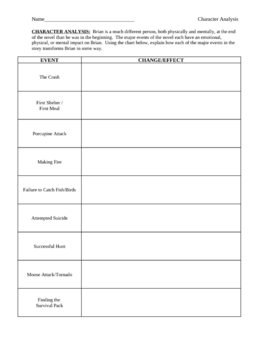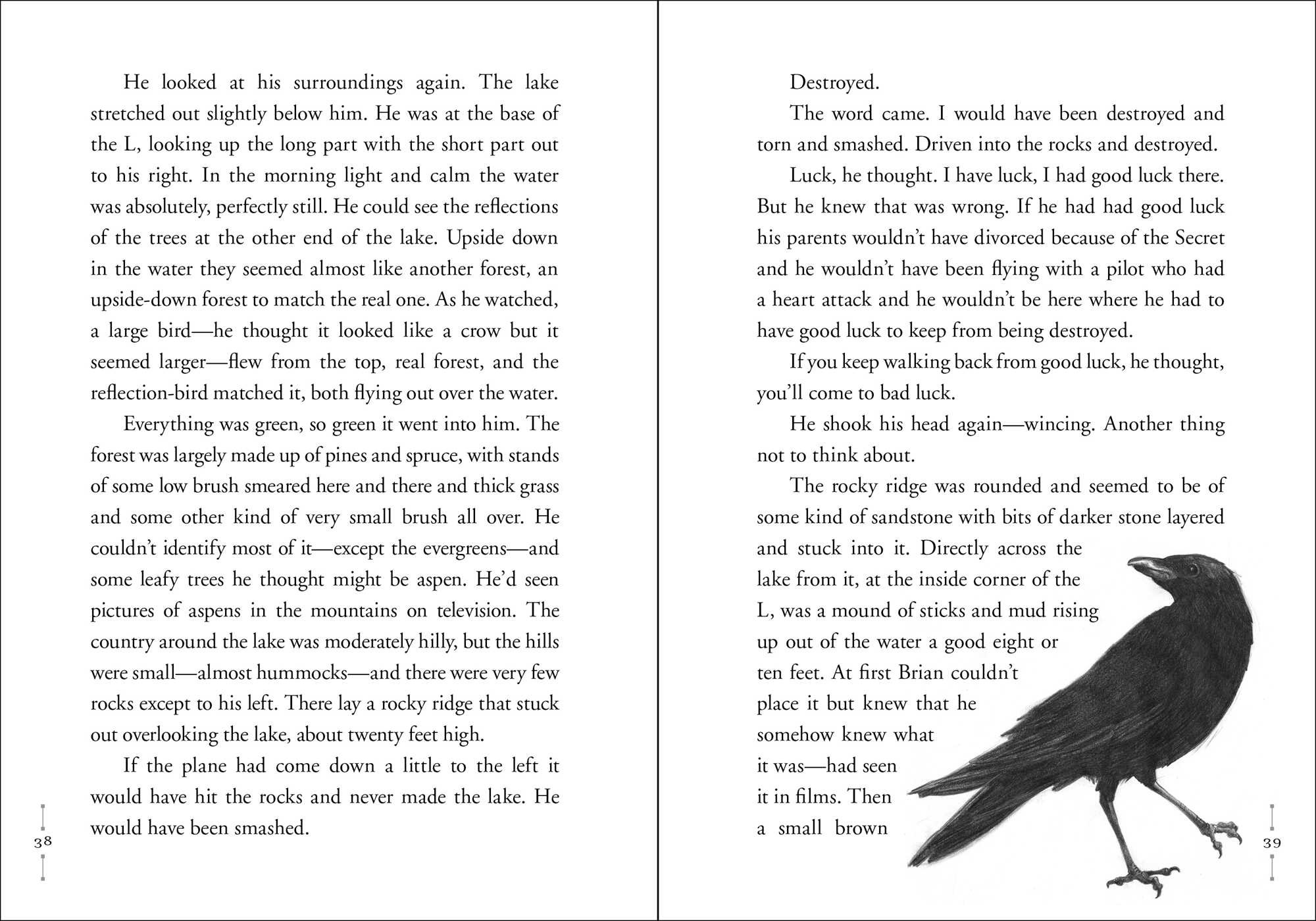

His mixed feelings surprise him when the plane finally surfaces so that he can retrieve the survival pack and then he's rescued. He also battles despair and emerges more patient, prepared to learn from his mistakes-when a rogue moose attacks him and a fierce storm reminds him of his mortality, he's prepared to make repairs with philosophical persistence. In time, he builds a shelter, experiments with berries, finds turtle eggs, starts a fire, makes a bow and arrow to catch fish and birds, and makes peace with the larger wildlife. His injuries prove painful but not fundamental. The plane sinks all he has left is a hatchet, attached to his belt. In a breathtaking sequence, Brian maneuvers the plane for hours while he tries to think what to do, at last crashing as gently and levelly as he can manage into a lake. After casually showing him how to steer, the pilot has a heart attack and dies. In transit between his divorcing parents, Brian is the plane's only passenger. Then back to work, the sun on his back, until at last he had a ball of fluff as big as a grapefruit-dry birchbark fluff.A prototypical survival story: after an airplane crash, a 13-year-old city boy spends two months alone in the Canadian wilderness. Twice he stopped for a handful of berries and once to go to the lake for a drink. It was painstaking work, slow work, and he stayed with it for over two hours. He started ripping the bark, using his fingernails at first, and when that didn’t work he used the sharp edge of the hatchet, cutting the bark in thin slivers, hairs so fine they were almost not there. A perfect home or they won’t stay, they won’t make fire. I must make a home for the sparks, he thought. There had to be a soft and incredibly fine nest for the sparks.


But this time one spark fell on one small hair of dry bark-almost a thread of bark-and seemed to glow a bit brighter before it died. He struck and a stream of sparks fell into the bark and quickly died. As an afterthought he threw in the remains of the twenty-dollar bill.

Then he went back into the shelter and arranged the ball of birchbark peelings at the base of the black rock. He pulled and twisted bits off the trees, packing them in one hand while he picked them with the other, picking and gathering until he had a wad close to the size of a baseball. They seemed flammable, dry and nearly powdery. Brian plucked some of them loose, rolled them in his fingers. Where the bark was peeling from the trunks it lifted in tiny tendrils, almost fluffs.


 0 kommentar(er)
0 kommentar(er)
